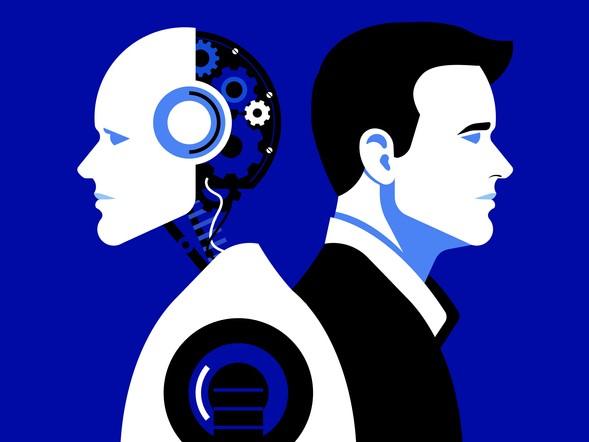
Classes need less focus on employability and more on profound learning

Autumn is upon us. Leaves are turning. Students have returned. The quads are full, as are the football stadiums. Many of us remember fondly our experiences in college − the clubs, the room-mates, the fun and – sometimes − the classes.
Later, we might point to this event or that new relationship as among the most profound of our lives. University experiences, looking back, introduced inflection points − moments after which life was never quite the same.
Those were profound life encounters that deeply changed us. But how many of us identify almost anything other than classes as profound moments? Classes are sometimes the least important part of what happened in college.
We firmly believe that college classes can be more profound. But how?
Why make university classes profound?
Universities are where we learn to live life well and to flourish as human beings. Unfortunately, universities have increasingly become places where learners hope to find jobs more than to develop themselves. Parents and students alike closely monitor news stories for the “best value” courses and universities.
However, this increasing focus on career goals ultimately strays from the fundamental purpose of universities, and we believe that profound learning can help us recapture it. Profound learning is about moving beyond the surface level to the depths of human potential and capability in all areas of life − including, but not solely within, our jobs.
Learning for employment/income and learning for living well are not mutually exclusive. They can and should be complementary. But if you spend much time on university campuses today, you’ll see work and jobs “winning” at the expense of broad human development.
We advocate interjecting a more balanced approach, leaving behind the dichotomous either/or ease of a narrow, career-oriented version of higher education.
What is profound learning?
Profound learning is an emerging area that teaches learners specific practices, such as continuous exploration, rejection of single answers, habit formation through structure, learner agency, community relationship building and extending learning beyond college.
Examples of such practices are wide-ranging, from learner control over learning environments to cooperative learning groups (not group work) and from emphasising growth mindsets to highlighting the long-term nature of learning. Profound learning experiences are often, but not always, dramatic and typically long lasting. The experience of profound growth can be emotional and disruptive and also embrace open and surprising encounters. Profound learning can be positive or negative but is grounded in real, authentic experiences.
How do I teach profound learning?
Profound learning in university classrooms should focus on the quest for deep self-understanding and purpose. Classes must inspire curiosity among learners by modelling curiosity among scholars − and invite learners to ask their own questions.
We should prioritise the questions that matter to our students over the coverage of content. We need to allow learners to engage with us as instructors, parents and administrators in deep, safe, trusting discussions about things that really matter to them. This kind of conversation leads to profound, meaningful sharing.
To foster a profound class, we must let go of “answers” and allow learners to deepen their own understandings and pursue their own questions rather than searching for right and wrong. We suspect this would create a significantly different type of curriculum on most college campuses. Preparing for gainful employment would be accomplished through profound learning, not at the expense of it.
The University of Dayton gives us the start of a road map towards profound learning experiences in its “language of vocation”. Drawn from this foundation, profound university classes would help students explore their “calling, purpose or vocation”. Learners in profound classes should be taught to understand the importance of connecting with a larger community, not merely through service activities but more deeply via the exploration of career choices and how work can serve their community. Classes need to demonstrate how learners can find joy, meaning and connection in their emotional, physical and spiritual lives.
Instructors wanting a more profound classroom experience can build student curiosity by asking: “What do you want to learn today? What are you curious about? Is there a way to build this project around your interests?” Contextualising these questions in the larger purposes of learning is essential.
For example, if the goal is profound career preparation, instructors could ask: “How can that job help you fit into a place, space and community? How can this passion of yours help with community needs and/or solve bigger problems of humanity?” How does this idea or activity relate to your definition of a good life? While it can be difficult to lead learners to such deep reflections, it is worthwhile having high expectations of their abilities to engage with such questions.
Current calls for undergraduate curriculum reforms often focus narrowly on partnering with industry to increase career readiness, offering more online learning options or modernising scientific and job-ready uses of technology. In profound classrooms, time is spent on life-changing self and community dialogues.
A call to action
As David Brooks directs us, we need to help learners tell “ever more accurate stories about ourselves…and − in ways we may never understand − that [will lead] to better desires, decision-making and more gracious living”.
Indeed, universities’ very purpose is to provide learners with the tools to be good human beings, to ask new questions and ultimately grow in wisdom in the service of a better world. Classes should take us deeper than we ever imagined we could go on the day we set foot on campus. After all, if university classrooms cannot become the places where we build capability for flourishing in life, where else will it happen?
Davin Carr-Chellman is an associate professor of education at the University of Dayton, Ohio, and chair-elect of the Commission for Professors of Adult Education.
Ali Carr-Chellman is dean and professor at the School of Education and Health Sciences at the University of Dayton and president of the Association of Educational Communications and Technology.
Michael Kroth is professor of education at the University of Idaho. He has written or co-authored six books including Transforming Work: The Five Keys to Achieving Trust, Commitment, and Passion in the Workplace.


